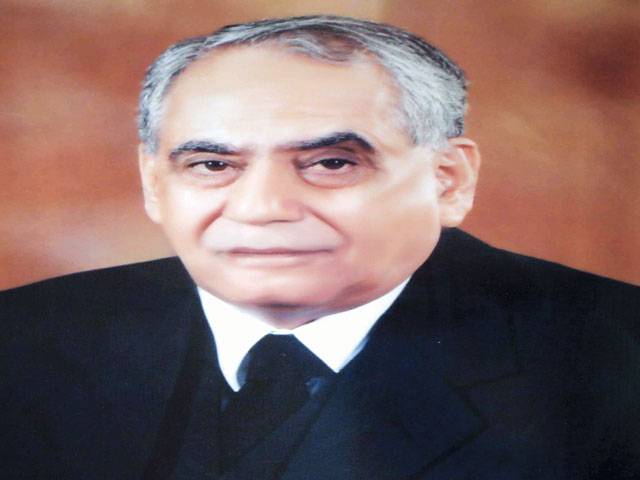LAHORE - There is no winner or loser in the Panama Papers case judgment, says a former chief justice of Pakistan, who also thinks that the ruling PML-N has no justification to distribute sweets at a time when the Supreme Court has “not” spared Prime Minister Nawaz Sharif.
In an interview to The Nation yesterday, Sheikh Riaz Ahmed said the argument carries a lot of weight that the Joint Investigation Team to be constituted in line with the Supreme Court’s order would not be able to work independently with Mr Sharif holding the office of the prime minister. But at the same time he thinks that the seasoned judges of the country’s top court would be able to assess whether the JIT had shown partiality in its investigation report.
About the justification for the lawyers’ organisations demand for the prime minister to step down following the April 20 SC judgment, the ex-CJP said: “This is politicking. It is unfortunate that even the bars are not sticking to the law (while making such a demand). Had the prime minister’s resignation been necessary, the court would have passed such an order.”
Asked whether the prime minister should step down on moral grounds after disqualification remarks given by the two senior judges of the five-member bench, Sheikh Riaz Ahmed said: “He (the PM) knows better than me. Had the resignation been binding, he would have come out (of office). But it’s not binding.”
Responding to a question, the former CJP proposed the government announce an amnesty scheme for all those having offshore accounts to enable them to bring their money back to Pakistan. The tax rate for these people should be as low as possible.
Also, he said, the government should introduce tax reforms and reduce the tax rate so that nobody feels temptation for keeping his money in offshore companies.
In his opinion the government should frame laws to prevent the flight of capital.
Giving his views on the split judgment given by the five-judge bench, Sheikh Riaz said the majority opinion would prevail and the observations of the two judges would be no more than observations. This verdict would always be judged on the basis of the majority view.
Curiosity and farsightedness of the judges demanded more investigations into the case, he said, implying that he supported the decision announced on April 20.
Justice Riaz said the Supreme Court had been moved under Article 184(3) of the Constitution which did not allow the apex court to become trial court. Similarly, he said, the court had a very limited scope under this provision. “Because of this complexity, I feel the majority decision (given by the bench) was absolutely right.”
Q: If three judges want answers to about a dozen more questions before giving any verdict on the eligibility or otherwise of Mian Nawaz to continue to hold the office of the country’s chief executive, how did the senior judges conclude just on the basis of available documents and proofs that he stood disqualified and should be denotified as a member of parliament?
A: It is said that a man can tell a lie but documents don’t. Scrutinising the evidence is a very difficult task. One person can accept it while the other will reject the same. The documents and proofs provided by the petitioners cannot be relied upon blindly. The apex court had taken the right decision by going for the formation of a joint investigation team to reach the truth.
Q: It is said that in the presence of the prime minister, who is the respondent in the case, the JIT will not be able to work independently and impartially. How do you comment on this argument?
A: It carries a lot of weight. But at the same the commission (JIT) will act like the Supreme Court. Its members will stay neutral. Then when the JIT’s report is presented, the seasoned judges of the apex court would immediately smell if the JIT members had shown partiality at any stage.
Q: Do you believe the JIT will be able to find answers to about a dozen questions in just 60 days which the respondents failed to furnish to the country’s top court during proceedings spread over several months?
A: Here I will like to recall a report presented by Justice Munir on the Qadianis issue. The three-judge commission had compiled the report after working day and night.
If the JIT has to present a report within the deadline set for the purpose, I don’t think the assignment can’t be completed.
Answering a question about the proceedings to be resumed after the submission of the JIT report, the former CJP said the bench to be constituted by the Chief Justice of Pakistan will summon the two parties for arguments which may continue for a week. Thereafter a final verdict would be announced, against which no appeal could be filed.
The new bench, he said, could be the same five-judge bench that heard the case and could also comprise new members.
About the status of the observations made against the prime minister by two senior members of the bench, Justice Riaz said they would stay as part of history, not binding on anyone.






